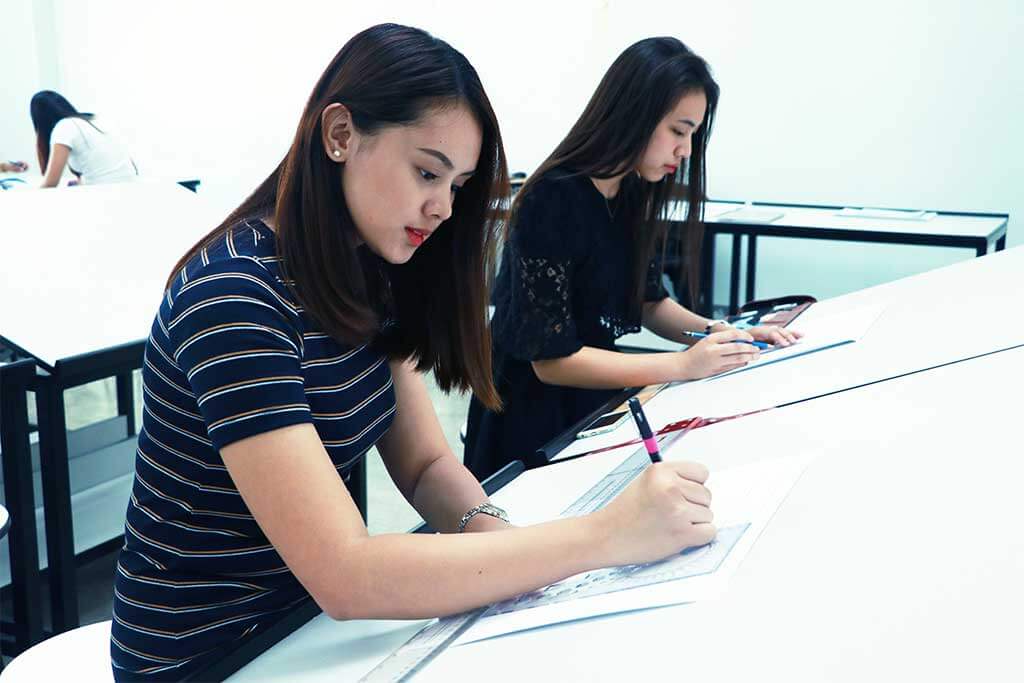Bachelor of Science in Architecture Program

About BS Architecture
The Bachelor of Science in Architecture program invests in training fledglings in architecture practice, especially in planning and architectural designing. The program equips learners with theoretical and practical aspects and awareness of cultural heritages, developing their analytical thinking and creativity.
This advances them in becoming responsibly adept in their field, such as interior design, construction management, sustainable design, and urban design, which demand scientific, aesthetic, and orderly coordination. Also, it provides learners with contemporary ventures that bridge them to the world of practice. The program aids learners in meeting the local and global standards in the field of architecture. Architecture schools in Davao aim to provide similar comprehensive training. The integration of Mindanao’s cultural heritage makes Mindanao architecture programs uniquely positioned to offer a rich learning experience.
Program Educational Objectives
- Ensure mastery of comprehensive architectural knowledge, both in theory and practice, and proficiency of skills by the graduates necessary in the global practice of architecture.
- Promote academic freedom and congenial atmosphere to develop architectural practitioners that could initiate and conduct architectural research and development for the advancement of the profession.
- Infuse a high sense of standard of professional ethics, values, attitudes, and sense of responsibility.
- Promote self-managed learning to develop the architectural practitioner’s ability and capacity to analyze facts, to think critically and to express ideas effectively.
- Impart appreciation of the basic philosophy and the fundamental principles of architecture and understanding of the direct relationship between man and his environment in the context of ecological balance and sustainable development.
- Engender the importance of history and culture in preservation and promotion of the architectural heritage of the country.
Student Outcomes
Graduates of the Bachelor of Science in Architecture program are expected to demonstrate:
- Create architectural solutions by applying knowledge in history, theory, planning, building technology and utilities, structural concepts and professional practice.
- Apply concepts and principles from specialized fields and allied disciplines into various architectural problems.
- Interpret and apply relevant laws, codes, charters and standards of architecture and the built environment.
- Apply research methods to address architectural problems.
- Apply various information and communication technology (ICT) media for architectural solutions, presentation, and techniques in design and construction.
- Demonstrate entrepreneurial and business acumen relevant to architecture practice.
- Prepare contract documents, technical reports and other legal documents used in architectural practice adhering to applicable laws, standards and regulations.

